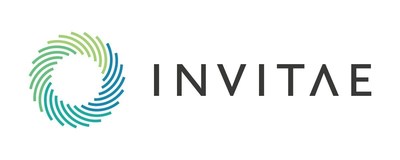Research Highlights Frequency of Genetic Risk Factors Among Men with Prostate Cancer, Suggests Role for Broader Screening
Invitae (NYSE: NVTA) presented findings at the ASHG Virtual Meeting indicating that 10% of men with prostate cancer have genetic changes linked to hereditary cancer syndromes. Notably, three-quarters of these patients are eligible for changes in management or treatment based on their genetic insights. The study analyzed over 4,000 men and found no significant difference in genetic alterations by cancer stage, signaling the need for broader testing criteria. Additionally, it highlighted lower positivity rates in African-American (6.2%) and Asian (6.7%) participants, emphasizing the need for enhanced genetic testing in diverse populations.
- 75% of patients with genetic changes are eligible for targeted therapies and management changes.
- Study involved over 4,000 prostate cancer patients, providing robust data.
- Increased genetic testing could improve treatment decisions and familial health insights.
- Lower genetic positivity rates in African-American and Asian populations suggest potential disparities in care.
- No statistical differences in genetic changes based on cancer stage indicates possible limitations in current testing criteria.
Insights
Analyzing...
— Three-quarters of patients with genetic changes had clinically relevant findings, including eligibility for precision therapies —
SAN FRANCISCO, Oct. 28, 2020 /PRNewswire/ -- Data presented by Invitae (NYSE: NVTA), a leading medical genetics company, at the American Society of Human Genetics (ASHG) Virtual Meeting found one in ten men with prostate cancer harbor genetic changes linked to hereditary cancer syndromes and three-quarters of those patients met criteria for changes in cancer management or treatment based on their genetic findings.
The study of more than 4,000 men with prostate cancer also found no statistical difference in the rate of cancer-causing genetic changes based on stage of disease, suggesting common criteria used to restrict testing would miss clinically important changes for many patients and their families.
"These new findings provide further evidence of the strong genetic associations with prostate cancer. It's clear that we must continue to explore how we can make genetic testing more available and accessible for men with prostate cancer, which will support treatment decisions through targeted therapies, clinical trial eligibility and additional management recommendations," said Sarah Nielsen, M.S., L.C.G.C., the lead author on the study. "Not only does increased genetic testing benefit the patient, but it also lends insight into family health risks, and particularly for female relatives, who might face an unknown higher risk of breast and ovarian cancers."
The study also looked at the rate of genetic changes based on reported ethnicity. Study participants included greater representation of patients reporting African-American and Hispanic ethnicity than most studies that have examined the inherited genetics of prostate cancer patients. Researchers found lower positivity rates among men reporting African-American (
Participants in the study received testing through Invitae's sponsored hereditary prostate cancer testing program which provides no-charge testing for men with prostate cancer.
About Invitae
Invitae Corporation (NYSE: NVTA) is a leading medical genetics company, whose mission is to bring comprehensive genetic information into mainstream medicine to improve healthcare for billions of people. Invitae's goal is to aggregate the world's genetic tests into a single service with higher quality, faster turnaround time, and lower prices. For more information, visit the company's website at invitae.com.
Safe Harbor Statement
This press release contains forward-looking statements within the meaning of the Private Securities Litigation Reform Act of 1995, including statements relating to the implications of the study results; and the benefits of genetic testing for men with prostate cancer and their relatives. Forward-looking statements are subject to risks and uncertainties that could cause actual results to differ materially, and reported results should not be considered as an indication of future performance. These risks and uncertainties include, but are not limited to: the company's history of losses; the company's ability to compete; the company's failure to manage growth effectively; the company's need to scale its infrastructure in advance of demand for its tests and to increase demand for its tests; the company's ability to use rapidly changing genetic data to interpret test results accurately and consistently; security breaches, loss of data and other disruptions; laws and regulations applicable to the company's business; and the other risks set forth in the company's filings with the Securities and Exchange Commission, including the risks set forth in the company's Quarterly Report on Form 10-Q for the quarter ended June 30, 2020. These forward-looking statements speak only as of the date hereof, and Invitae Corporation disclaims any obligation to update these forward-looking statements.
Contact:
Laura D'Angelo
pr@invitae.com
(628) 213-3283
![]() View original content to download multimedia:http://www.prnewswire.com/news-releases/research-highlights-frequency-of-genetic-risk-factors-among-men-with-prostate-cancer-suggests-role-for-broader-screening-301161534.html
View original content to download multimedia:http://www.prnewswire.com/news-releases/research-highlights-frequency-of-genetic-risk-factors-among-men-with-prostate-cancer-suggests-role-for-broader-screening-301161534.html
SOURCE Invitae Corporation








